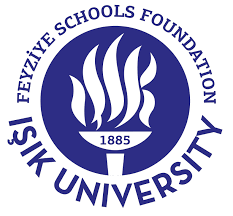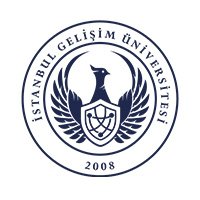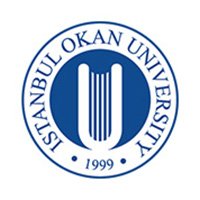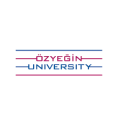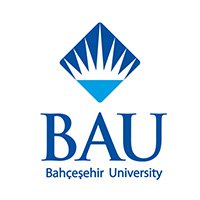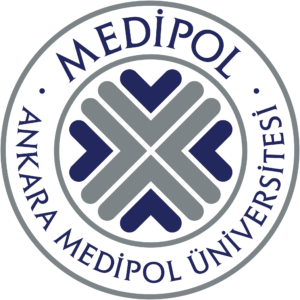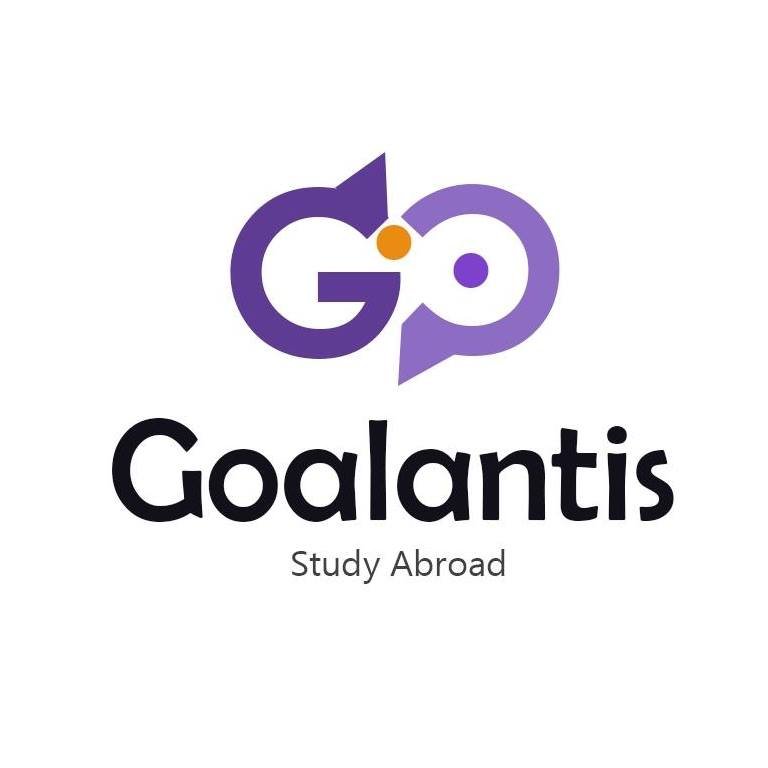Introduction to Studying in Turkey
Dreaming of studying abroad where ancient history meets modern innovation? Studying in Turkey offers world-class education, vibrant culture, and unbeatable affordability—especially in hubs like Istanbul. This ultimate guide dives into everything you need to know, from top universities to scholarships, to make your study abroad journey seamless. Turkey hosts over 336,000 international students from 203 countries, contributing $3 billion annually to its economy, making it a top 10 global education destination. With 208 universities (129 public, 79 private) and 600+ English-taught programs, Turkey aligns with the Bologna Process, ensuring your degree is recognized worldwide.
Here’s a snapshot of why Turkey stands out:
| Statistic | Statistic |
|---|---|
| Number of Universities | 208 (129 public, 79 private) |
| International Students | 336,000+ (from 203 countries) |
| English-Taught Programs | 600+ across levels |
| Avg. Tuition (Public) | $300–$1,200/year |
| Avg. Tuition (Private) | $5,000–$20,000/year |
| Cost of Living (Monthly) | $400–$650 (outside Istanbul) |
Whether you’re eyeing engineering at METU or business at Koç, Turkey blends affordability with quality—tuition is up to 50% lower than in the UK or US. Curious about studying in Istanbul or securing a scholarship? Let’s explore why Turkey’s your perfect study destination and how to make it happen.
Why Choose to Study in Turkey? Top Reasons for International Students
Wondering if Turkey’s worth the hype? Let’s chat about why thousands flock here yearly—affordable tuition, English-taught programs, and a strategic location for global careers. Aligned with the Bologna Process, Turkish degrees are recognized across Europe and beyond, ensuring seamless transfers via Erasmus+. Benefits of studying abroad in Turkey include 50% lower costs than the UK/US, with tuition at public unis under $1,000/year versus $20,000+ elsewhere.
Key reasons:
- Quality Education: 26 unis in QS Top 1,000; strong in engineering and medicine.
- Cultural Diversity: Bridge between East and West; 336,000+ internationals from 203 countries.
- Affordability: Living costs $400–$650/month; scholarships cover up to 100% tuition.
- Post-Study Opportunities: Work visas up to 1 year; booming job market in Istanbul. Why Turkey for Higher Education? Proximity to Europe/Middle East; vibrant student cities like Istanbul (ranked top 100 QS Best Student Cities).
- Why Turkey for Higher Education? Proximity to Europe/Middle East; vibrant student cities like Istanbul (ranked top 100 QS Best Student Cities).
Compared to Europe, Turkey’s costs are 40% lower, making it ideal for budget-conscious students. Internal link: See “Cost of Living” for breakdowns.
Top Universities in Turkey for International Students
From historic powerhouses to innovative privates, Turkey’s unis rival global elites. Here’s your curated list to kickstart applications. Prioritizing Istanbul options, we’ve selected based on QS/THE 2025 rankings and international appeal.
| University Name | Type | Location | Key Strengths | QS/THE Ranking 2025 | Tuition Range (USD/year) |
|---|---|---|---|---|---|
| Middle East Technical Univ. | Public | Ankara | Engineering, Sciences | QS: 269 | $300–$1,200 |
| Koç University | Private | Istanbul | Business, Medicine | THE: 351–400 | $10,000–$20,000 |
| Istanbul Technical Univ. | Public | Istanbul | Engineering, Tech | QS: 298 | $300–$1,200 |
| Boğaziçi University | Public | Istanbul | Social Sciences, Engineering | QS: 371 | $300–$1,200 |
| Sabancı University | Private | Istanbul | Business, Engineering | QS: 404 | $8,000–$18,000 |
| Bilkent University | Private | Ankara | Arts, Sciences | QS: 415 | $7,000–$15,000 |
| Hacettepe University | Public | Ankara | Medicine, Health Sciences | QS: 571 | $400–$8,000 (Medicine) |
| Bahçeşehir University | Private | Istanbul | Business, Design | THE: 801–1000 | $5,000–$12,000 |
These 10-15 entries focus on diversity; e.g., Boğaziçi for Istanbul’s gateway vibe. Conversational note: If you’re into tech, ITU’s campuses buzz with innovation—perfect for networking.
Best Public Universities in Turkey for International Students
Public gems like METU and Hacettepe offer prestige on a budget—think entrance via YÖS exam and fees under $1,000/year. Pros: Research focus, diverse cohorts; 70% of internationals choose publics for affordability. Public universities Turkey international admissions emphasize exams like YÖS/SAT.
- Middle East Technical University (Ankara): Top-ranked (QS 269); English programs in engineering; 5,000+ internationals.
- Boğaziçi University (Istanbul): Liberal arts focus; scenic Bosphorus campus; strong in IR.
- Istanbul Technical University: Engineering powerhouse (QS 298); historic yet modern.
- Hacettepe University (Ankara): Medicine leader; QS 571; research-intensive.
- Ankara University: Broad programs; affordable entry.
These attract 250,000+ students yearly via Erasmus+
Best Private Universities in Turkey for International Students
Privates like Sabancı shine with English programs and scholarships—ideal if you’re eyeing a seamless transition. Pros: Modern campuses, industry ties; 30% scholarships common. Private universities Turkey fees and scholarships make them flexible—no YÖS needed.
- Koç University (Istanbul): QS 323; business/medicine; full scholarships for top talent.
- Sabancı University (Istanbul): QS 404; interdisciplinary; internships mandatory.
- Bilkent University (Ankara): QS 415; arts/sciences; 60% students on aid.
- Özyeğin University (Istanbul): Aviation/engineering focus; industry partnerships.
- Bahçeşehir University (Istanbul): THE 801–1000; global network; English-heavy.
With 1,700+ internationals at Koç alone, these foster a global vibe.
Are Turkish Universities Internationally Recognized? Spotlight on Global Accolades
Skeptical about degree value? Absolutely—many rank in QS Top 500, with credits transferable worldwide via Erasmus+ and ENIC-NARIC validation. YÖK oversight ensures quality; 5 unis in QS Top 500 for 2025. Turkish degrees international recognition is strong in EU/US, especially engineering (ABET-accredited) and business (AACSB). Study in Turkey accreditation via Bologna means your degree opens doors globally—yes, it’s valid for jobs or further studies abroad.
Pros/Cons Table:
| Aspect | Public Unis | Private Unis |
|---|---|---|
| Recognition | High (QS/THE focus) | Excellent (global partners) |
| Pros | Affordable, research-heavy | English programs, flexible |
| Cons | Competitive entry | Higher fees |
Over 45 unis in EECA rankings; partnerships with 900+ institutions.
The Stages of Higher Education in Turkey – From Associate to PhD
Turkey’s system mirrors Europe’s—flexible and progressive. Let’s walk through each level so you know what fits your goals. Higher education levels Turkey follow Bologna: associate to doctorate, with 208 unis offering 45,000+ programs. Turkish degree programs overview: 2–6 years, English options in 30% courses.
Associate Degree (Ön Lisans) – Your 2-Year Jumpstart: Perfect for vocational skills in fields like nursing or IT—affordable entry to bachelor’s. Costs $200–$500/year; leads to jobs or transfer.
Bachelor’s Degree (Lisans) – Building Foundations (4 Years): Core undergrads with specializations; English options abound in Istanbul. Includes thesis; e.g., engineering at ITU.
Master’s Degree (Yüksek Lisans) – Advanced Edge (1-2 Years): Thesis or coursework tracks for career boosters; research focus at METU.
Doctorate Degree (Doktora) – Research Deep Dive (4+ Years): Funded PhDs with stipends for top talent; e.g., $500/month at publics.
Medical Specialization (Tıpta Uzmanlık) – Specialized Pathways: Post-grad med training, hugely popular for internationals; 6 years undergrad + residency.
Public vs. Private Universities in Turkey – Key Differences
Flow-integrated: Publics emphasize affordability/research; privates flexibility/English. Table:
| Factor | Public | Private |
|---|---|---|
| Costs | $200–$1,000 (Medicine: $4K–$8K) | $5K–$20K |
| Admissions | YÖS/SAT required | Uni-specific (no exam often) |
| Language | Mostly Turkish | 80% English |
| Scholarships | Government (Türkiye Burslari) | 50%+ merit-based |
Public vs private Turkey universities comparison: Publics suit budget-conscious; privates for seamless integration.
Top Majors to Study in Turkey for International Students – Most Popular Choices
Turkey excels in high-demand fields—medicine tops the list, but engineering and business are close behind. What’s hot in 2025? Best courses in Turkey for internationals: Health sciences (30% enrollment), engineering (25%). Popular majors Turkish universities: Focus on Istanbul for global edge.
Intro: With 600+ English programs, Turkey’s majors align with job markets—medicine via WFME recognition.
- Medicine/Dentistry: Global recognition; affordable vs. Europe. Engineering:
- Civil, computer; METU leads.
- Business Admin: Istanbul’s vibe; AACSB-accredited.
- Computer Science: AI boom. International Relations: Strategic location.
- International Relations: Strategic location.
Medicine and Health Sciences – Healing Hands in Historic Settings
Why it’s booming: Affordable vs. Europe ($4K–$8K public), English MD programs at Hacettepe. 18% internationals in health.
Business and Social Sciences – Global Mindsets
Admin/econ—perfect for Istanbul; Koç/Sabancı excel.
Arts/Humanities – Cultural Immersion
History/architecture; Boğaziçi strong.
Veterinary Sciences – Emerging Field
Popular for internationals; affordable at publics.
Requirements to Study in Turkey – Step-by-Step for Public and Private Unis
Overwhelmed by apps? We’ve got you—requirements vary, but here’s the roadmap. Admission requirements study in Turkey: High school diploma (equiv. to Turkish); GPA 70%+ for scholarships. YÖS exam guide: For publics, score 50+; SAT for privates/engineering.
Public: YÖS/TR-YÖS (math/science); Turkish proficiency (TÖMER) or English (TOEFL 79+/IELTS 6.5). Fees: $300–$1,200.
Private: Diploma + language proof; no exam often. Separate subsections:
Public Requirements: Exam-focused; deadlines Feb–May. Checklist: Diploma, passport, YÖS score, health cert.
Private Requirements: Flexible; uni interviews. E.g., Koç: SAT 1200+ or equivalent.
| Document | Public/Private |
|---|---|
| High School Diploma | Both |
| Language Test | Both (TOEFL/IELTS/YDS) |
| Entrance Exam | Public (YÖS) |
How to Apply: The Full Application Process for Studying in Turkey
From docs to deadlines—apply via ÖSYM (public) or uni portals (private). Deadlines: Feb–May for fall; ÖSYM for YÖS. Apply to Turkish universities: Online, $50–$100 fee. Study abroad application Turkey: Prep 3–6 months early.
Steps: 1. Choose uni/program. 2. Gather docs (diploma, transcripts). 3. Submit via portal. 4. Interview/exam. 5. Acceptance letter for visa.
Türkiye Scholarships – Free Rides for International Students
Government gold: Türkiye Scholarships cover tuition, housing, stipend—apply early! Turkish government scholarships internationals: Fully funded for 5,000+ yearly; GPA 70%+ eligibility. Benefits: $300/month stipend, flight, insurance; success rate 2% from 250K apps.
Details: Open Jan 10–Feb 20, 2025; all levels except health this cycle. Stories: Syrian student at METU credits it for med degree. Fully funded study in Turkey: Apply at turkiyeburslari.gov.tr.
Cost of Studying and Living in Turkey for Students – Budget Breakdown 2025
Affordable adventure: Tuition $200–20,000/year; living $400–$650/month. Study in Turkey costs 2025: Inflation-adjusted, Istanbul 20% higher. Conversational: Stretch your dollars further than in London—total yearly $6,000–$10,000.
(Istanbul vs. Others):
| Expense | Istanbul (USD) | Other Cities (USD) |
|---|---|---|
| Rent (Shared) | $300–$500 | $200–$400 |
| Food | $150–$250 | $100–$200 |
| Transport (Pass) | $50 | $30–$40 |
| Utilities | $50–$100 | $40–$80 |
| Total Monthly | $600–$1,000 | $400–$650 |
Tuition separate: Publics low; privates higher but scholarship-heavy.
Vibrant Student Life in Turkey – Beyond the Classroom
From beach parties in Antalya to cafe crawls in Istanbul—student life pulses with energy. Student life Turkey internationals: Dorms $100/month; clubs/safety high; 20 hrs/week jobs allowed post-year 1. Living as a student in Istanbul: Multicultural hubs; Erasmus events.
Housing: Dorms (KYK: $100/month); shared apartments $200–$400. Clubs: 500+ at unis; sports (football, hiking). Safety: Low crime; part-time in cafes ($5/hr). 400 words: Join cultural fests for bonds.
Common Challenges When Studying in Turkey – And How to Tackle Them
Honest talk: Language hurdles? Culture shock? We’ve got tips to thrive. Challenges studying abroad Turkey: Inflation, visa delays; 40% cite language.
- Language Barriers: Solution: Free TÖMER courses; apps like Duolingo.
- Culture Shock/Homesickness: Join intl clubs; video calls.
- Visa/Inflation Delays: Apply early; budget buffer ($100/month extra).
- Academic Adjustment: Large classes; seek tutors.
Essential Tips for International Students Studying in Turkey
Pro hacks: Learn basic Turkish, join Erasmus exchanges, explore off-campus. Tips for studying in Turkey: Intl student advice Turkey—8-10 tips.
- Master basics: Turkish for daily life.
- Budget wisely: Track via apps.
- Network: LinkedIn for internships.
- Health: Get insurance ($50/month).
- Transport: Istanbulkart for discounts.
- Culture: Try Ramadan iftar.
- Safety: Avoid late nights alone.
- Academics: Office hours key.
- Visa: Renew on time.
- Explore: Weekend trips via buses ($20).
Conclusion – Your Next Steps to Study in Turkey
Ready to pack? Turkey awaits—affordable, accredited, and adventurous. Start with a uni shortlist today. Affordable study abroad options like publics + scholarships make it accessible. Recap: 336K internationals, top rankings, vibrant life. Contact Us Now for personalized guidance—your Turkish adventure starts now!
How much does it cost to study in Turkey?
Tuition ranges $200–$20,000/year; living $400–$650/month. Publics are cheapest—budget $6,000–$10,000/year total.
Do I need Turkish to study there?
No, 50%+ programs in English. But basic Turkish helps daily life; free courses at unis.
what is the best universities in Istanbul?
Boğaziçi, Koç, ITU—top for internationals with English options.
What’s the YÖS exam?
Public uni entry test for foreigners; covers math/science. Prep via official guides.
Can I work while studying?
Yes, 20 hrs/week on campus; full-time holidays. Earnings: $300–$500/month.
Visa process for study in Turkey?
Student residence permit post-acceptance; need acceptance letter, funds proof.
Türkiye Scholarships deadlines?
Jan–Feb annually; fully funded for top applicants.
Popular majors for internationals?
Medicine (30%), engineering (25%), business (20%).











